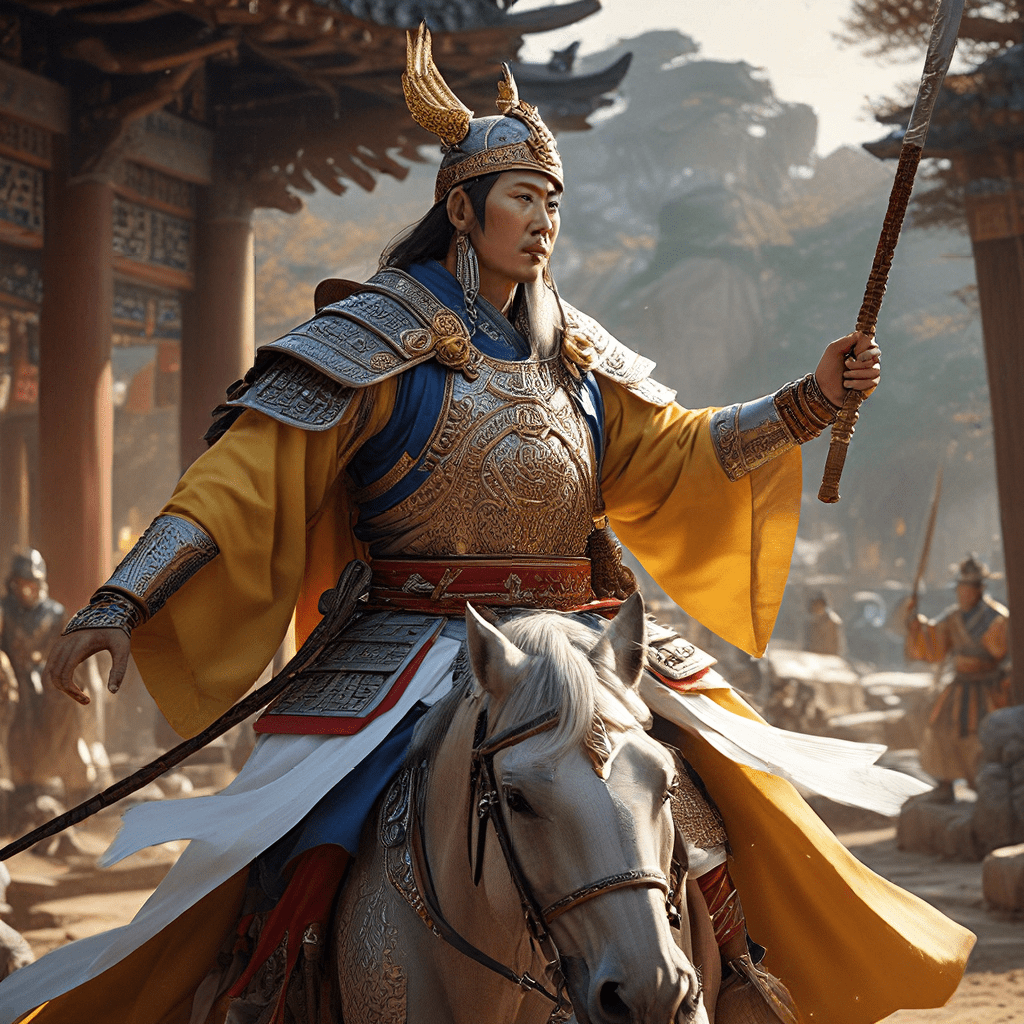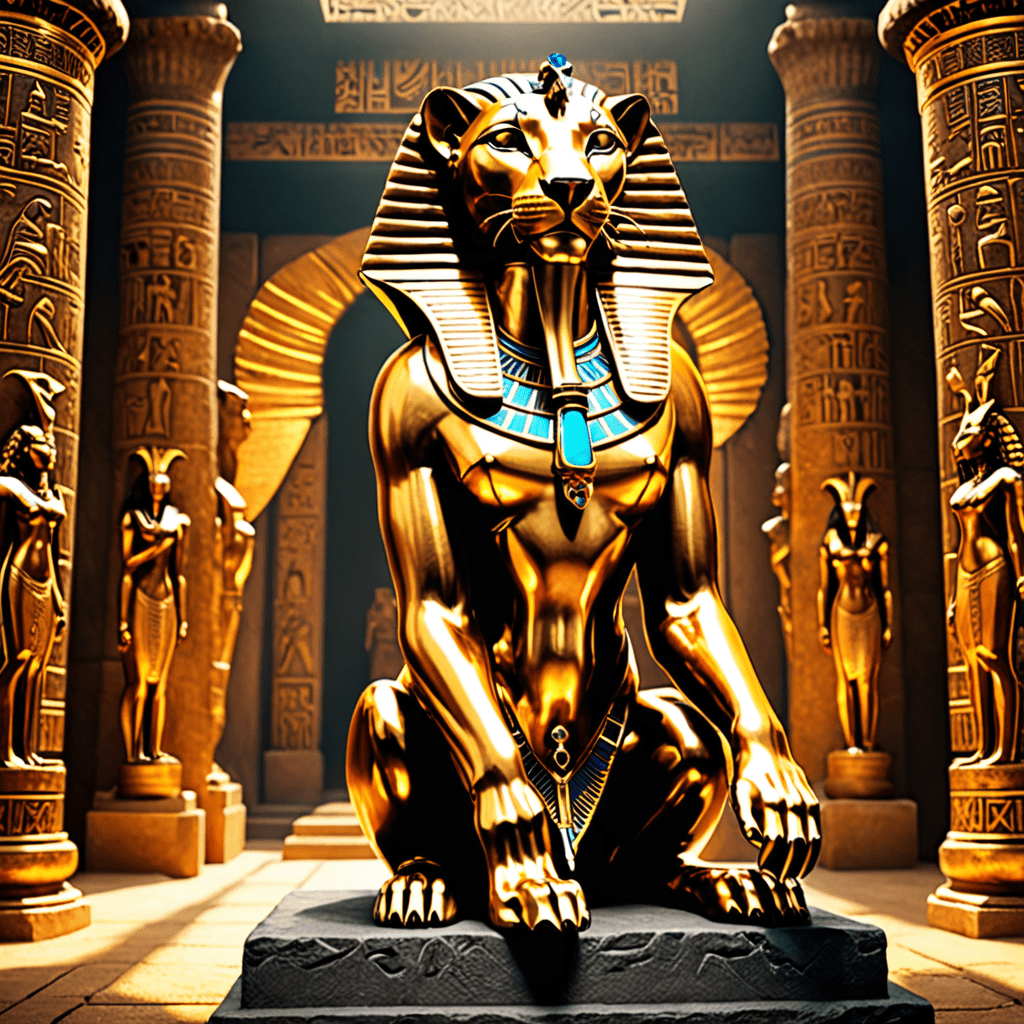The Legend of King Uija: A Mythical Figure in Korean History
In the rich tapestry of Korean history, woven with tales of bravery, wisdom, and mythical beings, the legend of King Uija stands as a captivating narrative. This legendary figure, believed to have reigned during the ancient period known as the Three Kingdoms of Korea, is shrouded in mystery and folklore. The story of King Uija, despite its mythical origins, continues to resonate with Koreans and provides valuable insights into their cultural values and beliefs.
The Mythological Origins of King Uija
The legend of King Uija begins with a mystical birth. He is said to have been born from a divine being, a celestial being who descended from the heavens. This divine parentage bestowed upon King Uija exceptional qualities, including supernatural powers and an extraordinary wisdom. His lineage, deeply rooted in the mystical, cemented his place as a divinely chosen ruler, destined to bring peace and prosperity to his kingdom.
While historical records offer little concrete evidence about King Uija's reign, the mythological accounts paint a vivid picture of a wise and just leader. The legend portrays him as a ruler who governed with compassion and fairness, leading his people to an era of peace and prosperity. His reign is often described as a golden age, where agriculture flourished, trade thrived, and the arts and sciences prospered.
The Reign of King Uija: A Tale of Prosperity and Tragedy
The legend of King Uija is not solely a tale of prosperity; it also narrates a profound tragedy. It tells of a time when a great famine struck the land, threatening to decimate the kingdom's population. The people, desperate and hungry, turned to their king for salvation. King Uija, despite his divine powers, was unable to avert the famine. He was said to have sacrificed himself to appease the gods and bring an end to the suffering of his people.
The legend of King Uija's sacrifice is a poignant reminder of the deep connection between the ruler and the ruled, emphasizing the king's responsibility for the well-being of his people. It underscores the importance of selfless leadership and the profound impact of a ruler's choices on the fate of their kingdom.
The Significance of King Uija's Legacy
The legend of King Uija, despite its mythical origins, serves a significant purpose in Korean culture. It acts as a historical allegory, reflecting the values and aspirations of the Korean people. The myth portrays an ideal ruler, embodying virtues like wisdom, compassion, and self-sacrifice. It serves as a model for future rulers, inspiring them to strive for the betterment of their people.
The Historical Context of the Legend
While the legend of King Uija can be traced back to ancient Korean folklore, it is crucial to understand the historical context in which it emerged. The Three Kingdoms period, during which the legend is set, was a time of great political and social upheaval. The emergence of such a figure, a divinely chosen ruler who brought peace and prosperity, likely reflected the people's yearning for stability and unity.
The legend of King Uija, in essence, represents a collective desire for a just and benevolent leader who would guide their nation through turbulent times. It offers a sense of hope and a reminder that even in the face of great adversity, there is always the potential for peace and prosperity.
Possible Interpretations of the Legend
The legend of King Uija, like many ancient tales, holds layers of meaning open to interpretation. One perspective focuses on the themes of leadership and sacrifice. King Uija's divine birth suggests a ruler destined for greatness, highlighting the importance of a wise and benevolent leader. His self-sacrifice to end the famine emphasizes the ultimate responsibility of a ruler to their people, even at the cost of their own life.
Another interpretation explores the connection between the people and their king. King Uija's inability to stop the famine, despite his divine powers, reflects the limitations even a powerful ruler faces. His sacrifice underscores the deep connection between the ruler and the ruled, suggesting that a true leader's welfare is intertwined with the well-being of their people.
The legend can also be understood as a reflection of the Korean people's yearning for a golden age of peace and prosperity. King Uija's reign, marked by abundance and cultural flourishing, embodies this ideal. The legend serves as a reminder of this past golden age and a symbol of the Korean people's enduring hope for a future filled with prosperity and harmony.
The Legend as a Reflection of Korean Values
The legend of King Uija provides valuable insights into Korean values and cultural beliefs. The emphasis on wisdom, compassion, and self-sacrifice in King Uija's character reflects the importance of these virtues in Korean society. The story reinforces the Confucian ideals of benevolent rule and the duty of leaders to care for their people.
The legend also reflects the Korean belief in the importance of harmony and balance in the natural world. King Uija's divine birth connects him with the celestial realm, emphasizing the connection between humans and nature. His sacrifice to appease the gods reflects the Korean understanding that human actions impact the natural world and that a harmonious relationship with nature is vital for prosperity.
The legend's enduring presence in Korean culture demonstrates the continuing relevance of these values to contemporary Korean society. The story serves as a reminder of the importance of ethical leadership, social responsibility, and harmonious coexistence with nature, values that remain central to Korean cultural identity.
The Influence of Shamanism on the Legend
Shamanism, a spiritual belief system deeply rooted in Korean history, played a significant role in shaping the legend of King Uija. The legend's elements of divine birth, supernatural powers, and sacrifice resonate with core shamanistic beliefs. King Uija's divine lineage connects him with the spiritual realm, a common theme in shamanistic traditions. His ability to influence the natural world through his divine powers reflects shamanistic beliefs in the interconnectedness of the human and spiritual realms.
Shamanistic rituals often involve sacrifices to appease spirits and ensure harmony in the world. King Uija's sacrifice to end the famine aligns with this practice, reinforcing the shamanistic belief in the power of sacrifice to restore balance.
The presence of shamanistic influences in the legend of King Uija highlights the importance of these beliefs in shaping Korean history and culture. The legend reflects the deep-rooted connection between the Korean people and the spiritual world, a connection that has shaped their understanding of the world and their place within it.
Archaeological Evidence and the Legend
While the legend of King Uija is primarily a product of folklore, archaeological evidence can provide insights into the historical context of the legend. Archaeological discoveries in the Korean peninsula, particularly those related to the Three Kingdoms period, can reveal insights into the political, social, and economic conditions of that era. For example, discoveries of ancient tombs, palaces, and artifacts can shed light on the lives and beliefs of the people who lived during that time.
This evidence can be used to understand the historical context in which the legend emerged. Archaeological discoveries can help researchers identify specific historical events, social structures, or cultural beliefs that may have inspired the creation of the legend. For example, the discovery of artifacts related to rituals or ceremonies may provide clues about the influence of shamanism on the legend. While archaeological evidence cannot definitively confirm the historical existence of King Uija, it can help provide a more nuanced understanding of the historical context in which the legend arose.
The Enduring Appeal of the Legend of King Uija
Despite its mythical origins, the legend of King Uija continues to resonate with Korean people today. The story's themes of leadership, sacrifice, and the yearning for a golden age are timeless and universally relatable. The legend serves as a source of inspiration, reminding people of the importance of strong leadership, the power of compassion, and the hope for a brighter future. The enduring appeal of the legend also speaks to the enduring cultural significance of the story, reflecting the enduring values and beliefs of the Korean people.
The legend of King Uija, through its captivating narrative and profound themes, remains an integral part of Korean cultural heritage. It provides a glimpse into the rich tapestry of Korean history, showcasing the enduring values and beliefs that have shaped the Korean people and their culture. The legend's enduring appeal serves as a testament to its power to continue to inspire and resonate with generations to come.
FAQs
1. Is King Uija a real historical figure?
While the legend of King Uija is deeply embedded in Korean folklore, there is no definitive historical evidence to support his existence. He is considered a legendary figure, whose story likely reflects the aspirations and values of the Korean people during a specific historical period.
2. What is the significance of King Uija's sacrifice?
King Uija's sacrifice symbolizes the ultimate responsibility of a leader to their people. It highlights the willingness of a true leader to put the needs of their people above their own, even at the cost of their own life.
3. How does the legend of King Uija connect to Korean culture?
The legend reflects core Korean values, such as the importance of wisdom, compassion, and self-sacrifice in leadership. It also highlights the Korean belief in the importance of harmony with nature and the spiritual realm.
4. Why does the legend of King Uija continue to resonate with Korean people today?
The story's themes of leadership, sacrifice, and the longing for a golden age are timeless and universally relatable. The legend serves as a source of inspiration, reminding people of the importance of strong leadership, the power of compassion, and the hope for a brighter future.
5. What is the role of shamanism in the legend of King Uija?
Shamanistic beliefs have significantly influenced the legend, incorporating elements of divine birth, supernatural powers, and sacrifice. The legend reflects the deep-rooted connection between the Korean people and the spiritual world, a connection deeply embedded in shamanistic traditions.



